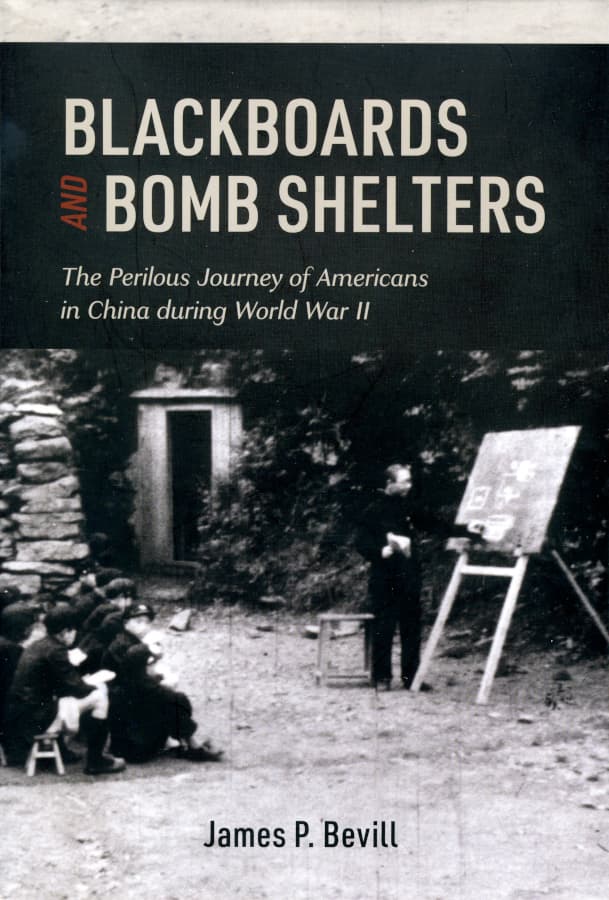
Looking for a good read? Here is a recommendation. I have an unusual approach to reviewing books. I review books I feel merit a review. Each review is an opportunity to recommend a book. If I do not think a book is worth reading, I find another book to review. You do not have to agree with everything every author has written (I do not), but the fiction I review is entertaining (and often thought-provoking) and the non-fiction contain ideas worth reading.
Book Review
An American Civilian in WW2 China
Reviewed by Mark Lardas
April 17, 2022
“Blackboards and Bomb Shelters: The Perilous Journey of Americans in China during World War II,” by James P. Bevill, Schiffer Military, 2022, 320 pages, $29.99 (Hardcover)
Paul Springer grew up in New Jersey during the 1920s and 1930s. A smart kid, he graduated high school at 16 in 1934 and worked at a bank. In 1937 he won a full scholarship at Ivy League Yale. Paul wanted adventure. He wanted to travel.
“Blackboards and Bomb Shelters: The Perilous Journey of Americans in China during World War II,” by James P. Bevill, tells what happened next. Yale sponsored the Yali Middle School in Yuanling, Hunan Province in China. It taught in English and Chinese. Every other year Yale sent three Yale graduates to teach there. During his senior year at Yale Paul was invited to apply for one of the positions.
He applied, and with two other Yale graduates sailed to China in July 1941. It was an opportunity to satisfy his dreams of travel during an age when this was rare. While The US was still at peace, China had been at war with Japan longer than Paul had been to Yale. He knew he was entering a war zone. His first semester teaching at Yali Middle School was punctuated by Japanese air raids.
Bevill follows Paul Springer and his two Yale companions through World War II in China. American neutrality ended before Paul’s first semester teaching did. When Japan attacked Pearl Harbor in December 1941 they became citizens of a belligerent nation. They were effectively trapped in China. Japan quickly severed all land connections out. One, a pacifist, remained with Yale-in-China. A second joined the staff of Claire Chennault’s US Fourteenth Air Force in China. Paul continued teaching at Yali, attempting, but failing to get a commission in the US Armed Forces, instead becoming a civilian employee of the US State Department. He served in both China and Egypt.
The book is fascinating on several levels. Paul and friends had never traveled abroad prior to going to China. Bevill highlights the culture shock they felt, and the curiosity they aroused in their Chinese students. He also captures the confusion and concerns they felt when Pearl Harbor transformed them into active participants.
“Blackboards and Bomb Shelters” is a personal story for Bevill, Springer was Bevill’s father-in-law. Yet it resonates beyond that personal story. It is also Bevill’s tribute to Springer’s generation. Bevill captures the feel of the US and China in the prewar World War II years, and highlights how much things have changed in 70 years.
Mark Lardas, an engineer, freelance writer, historian, and model-maker, lives in League City. His website is marklardas.com .